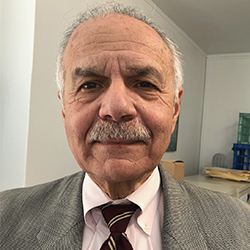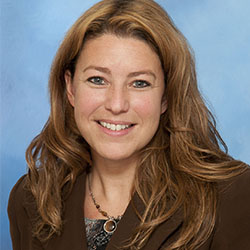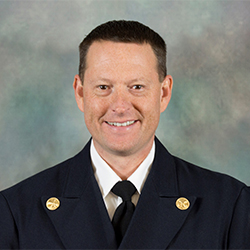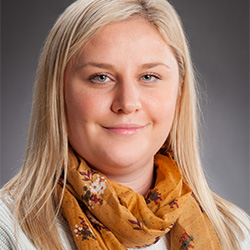IFIRE Team
IFIRE Team
The IFIRE Team is distributed internationally. The organization's "virtual" home is here at William James College.
 Anthony F. Campagna, PhD, MAC, received his BA in psychology from Dartmouth College in 1969, and an MS in 1973 and
PhD in clinical psychology from Yale University in 1975. He is licensed in Connecticut
and Rhode Island, and qualified as a Master Addiction Counselor by the NCC-AP. In
1995 he and his wife created and co-directed Connecticut’s Juvenile Court Assessment
Service. In 1998 he created and co-directed Connecticut’s largest privately operated
gender-specific juvenile detention center for girls. He now co-directs The Greater
New Haven Counseling and Family Therapy Center. He maintains a private psychotherapy
practice, and subspecialties in the assessment of problem sexual behavior, substance
use disorders, and the inappropriate use of fire. He is a founding Board member of
the International Association for Fire Setting Intervention, Research, and Education.
Anthony F. Campagna, PhD, MAC, received his BA in psychology from Dartmouth College in 1969, and an MS in 1973 and
PhD in clinical psychology from Yale University in 1975. He is licensed in Connecticut
and Rhode Island, and qualified as a Master Addiction Counselor by the NCC-AP. In
1995 he and his wife created and co-directed Connecticut’s Juvenile Court Assessment
Service. In 1998 he created and co-directed Connecticut’s largest privately operated
gender-specific juvenile detention center for girls. He now co-directs The Greater
New Haven Counseling and Family Therapy Center. He maintains a private psychotherapy
practice, and subspecialties in the assessment of problem sexual behavior, substance
use disorders, and the inappropriate use of fire. He is a founding Board member of
the International Association for Fire Setting Intervention, Research, and Education.
 Theresa A. Gannon, DPhil, CPsychol (Forensic) is Professor of Forensic Psychology and Director of the Centre for Research and Education
in Forensic Psychology (CORE-FP) at the University of Kent, UK. Theresa also works
as a Practitioner Consultant Forensic Psychologist specialising in deliberate firesetting
for the Forensic and Specialist Service Line, Kent and Medway Social Care and Partnership
Trust, UK. Theresa has published over 140 chapters, articles, books, and other scholarly
works in the areas of male and female-perpetrated offending. She is particularly interested
in the assessment and treatment of individuals who have set deliberate fires. In 2012,
Theresa led the development of the first comprehensive theory of adult deliberate
firesetting (named the Multi-trajectory Theory of Adult Firesetting or M-TAFF). After leading a series of research studies examining the treatment needs of adult
firesetters, Theresa developed the first standardised treatment programs for firesetters
(the FIPP and FIP-MO) which are now implemented in prisons and hospitals internationally.
In 2016, Theresa was lead recipient of the ESRC’s Outstanding Impact in Society Award
for her theoretical work and treatment provision regarding deliberate firesetting.
Theresa A. Gannon, DPhil, CPsychol (Forensic) is Professor of Forensic Psychology and Director of the Centre for Research and Education
in Forensic Psychology (CORE-FP) at the University of Kent, UK. Theresa also works
as a Practitioner Consultant Forensic Psychologist specialising in deliberate firesetting
for the Forensic and Specialist Service Line, Kent and Medway Social Care and Partnership
Trust, UK. Theresa has published over 140 chapters, articles, books, and other scholarly
works in the areas of male and female-perpetrated offending. She is particularly interested
in the assessment and treatment of individuals who have set deliberate fires. In 2012,
Theresa led the development of the first comprehensive theory of adult deliberate
firesetting (named the Multi-trajectory Theory of Adult Firesetting or M-TAFF). After leading a series of research studies examining the treatment needs of adult
firesetters, Theresa developed the first standardised treatment programs for firesetters
(the FIPP and FIP-MO) which are now implemented in prisons and hospitals internationally.
In 2016, Theresa was lead recipient of the ESRC’s Outstanding Impact in Society Award
for her theoretical work and treatment provision regarding deliberate firesetting.
Theresa is lead editor of several books including Aggressive Offenders’ Cognition: Theory, Research, and Treatment (2007: Wiley), Female Sexual Offenders: Theory, Assessment, and Treatment (2010: Wiley-Blackwell), and Sexual Offending: Cognition, Emotion, and Motivation (2017: Wiley-Blackwell). Theresa is also co-editor of several other books. Key examples include: Firesetting and Mental Health (2012: Royal College of Psychiatrists), What Works in Offender Rehabilitation: An Evidence-Based Approach to Assessment and Treatment (2013: Wiley-Blackwell), and The Psychology of Arson: A Practical Guide to Understanding and Managing Adult Deliberate Firesetters (2015: Routledge).
Robert Kinscherff, PhD, JD is a clinical/forensic psychologist and attorney who currently serves as Executive Director for the Center for Law, Brain & Behavior (CLBB) at Massachusetts General Hospital. CLBB focuses upon the intersections of neuroscience, public policy and law in the emerging field of “neurolaw” with core program areas in: Aging Brain (elder protection and decisional competencies); Criminal Sentencing (fostering science-based sentencing practices); Adolescent and Emerging Young Justice (fostering developmentally aligned law and practice in the juvenile and criminal legal systems); and, Trauma At the Border (bringing science to understanding the impact of immigration/asylum policies).
Dr. Kinscherff is also Professor in the Doctoral Clinical Psychology Program at William James College where he teaches classes in forensic psychology, public health/policy impacts on child behavioral health, and mental health law. He has previously served as Director of Juvenile Court Clinic Services for the statewide system of juvenile courts in Massachusetts, as an Assistant Commissioner for Forensic Mental Health for the MA Department of Mental Health. He has practiced forensic psychology for more than three decades. This includes assessment and risk management planning for juveniles and adults who have misused fire and penetrated juvenile or criminal legal systems, inpatient and community-based forensic mental health systems, and child protection systems. Dr. Kinscherff has provided trainings to courts, probation/parole officers, attorneys, and behavioral health professionals on assessment, risk management, and interventions with persons who have misused fire. He has particular interests in work with persons with Fetal Alcohol Spectrum Disorders (FASD), Intellectual and Developmental Disabilities, complex trauma, and severe mental illnesses.
 Karla Klas, BSN, RN, CCRP manages the University of Michigan Trauma Burn Center's nationally acclaimed community
and family-centered injury prevention programs. Her 29-year distinguished career in
burn/trauma critical care nursing, research, professional development training, mentoring,
program management, public education, curriculum development, CRR, and injury prevention
has produced numerous journal publications, textbook chapters and grant awards. She
has attained multiple specialty certifications, and leadership appointments to committees
devoted to injury control. An award-winning educator, speaker, and author, Karla also
mentors at-risk youth, volunteers in survivor support programs, and enjoys all kinds
of outdoor adventures with her family.
Karla Klas, BSN, RN, CCRP manages the University of Michigan Trauma Burn Center's nationally acclaimed community
and family-centered injury prevention programs. Her 29-year distinguished career in
burn/trauma critical care nursing, research, professional development training, mentoring,
program management, public education, curriculum development, CRR, and injury prevention
has produced numerous journal publications, textbook chapters and grant awards. She
has attained multiple specialty certifications, and leadership appointments to committees
devoted to injury control. An award-winning educator, speaker, and author, Karla also
mentors at-risk youth, volunteers in survivor support programs, and enjoys all kinds
of outdoor adventures with her family.
 Training Chief/Paramedic Brent Smith joined the Cedar Rapids Fire Department in 2003 after volunteering for a local fire
department for 7 years prior. After 16 years of shift work, rising the ranks from
Firefighter to Captain to Battalion Chief, Chief Smith now is in charge of all things
training in the all hazards response that is Cedar Rapids, Iowa Fire Department.
Training Chief/Paramedic Brent Smith joined the Cedar Rapids Fire Department in 2003 after volunteering for a local fire
department for 7 years prior. After 16 years of shift work, rising the ranks from
Firefighter to Captain to Battalion Chief, Chief Smith now is in charge of all things
training in the all hazards response that is Cedar Rapids, Iowa Fire Department.
Chief Smith has spent the last 10 years as Manager of the State of Iowa Youth Fire Intervention program that is administered through the State Fire Marshal’s Office. He currently manages 5 Regional Coordinators and is also responsible for covering 22 counties within his own region in the Iowa YFIP. Most notably, Chief Brent Smith was on the Executive Committee and help build the YFIRES.com website, now used by hundreds of fire departments across the country in managing their Youth Fire Intervention Programs.
Chief Smith is a native Iowan who received his BA degree from the University of Northern Iowa in 2001. Chief Smith has since achieved the Fire Officer (FO) designation from the Center for Public Safety Excellence (CPSE).
 Robert Stadolnik, EdD, is a licensed psychologist and President of FirePsych, Inc., a specialized private
practice devoted to firesetting assessment, training, and research. Since 1995 he
has completed or supervised over 2000 firesetting behavior assessments for adults,
adolescents, and children. Dr. Stadolnik provides clinical and program consultation
in the assessment and treatment of adults with arson/firesetting histories transitioning
from hospital care to community living to forensic hospitals, secure psychiatric hospitals
and community service agencies. Dr. Stadolnik has completed research studies on
adolescents in residential care and adolescent females and regularly consults to youth
and adult serving agencies, schools, and state agencies. Dr. Stadolnik is the author
of Drawn to the Flame: Assessment and Treatment of Juvenile Firesetting (Professional Resource Press, 2000) the Firesetting Risk Assessment Tool-Youth (FirePsych, 2010), and a recent chapter titled “Promising Practice in the Development
of Assessment and Treatment Models for Juvenile Firesetting/Arson” in The Psychology or Arson (Eds: Gannon, Doley and Dickens; 2015). He serves as Consulting Psychologist to Brandon Residential Centers (Natick, MA)
Rapid Firesetting Assessment (RFA) and Intensive Firesetting Treatment Programs (IFTP).
Dr. Stadolnik provides trainings nationally and internationally on juvenile and adult
firesetting.
Robert Stadolnik, EdD, is a licensed psychologist and President of FirePsych, Inc., a specialized private
practice devoted to firesetting assessment, training, and research. Since 1995 he
has completed or supervised over 2000 firesetting behavior assessments for adults,
adolescents, and children. Dr. Stadolnik provides clinical and program consultation
in the assessment and treatment of adults with arson/firesetting histories transitioning
from hospital care to community living to forensic hospitals, secure psychiatric hospitals
and community service agencies. Dr. Stadolnik has completed research studies on
adolescents in residential care and adolescent females and regularly consults to youth
and adult serving agencies, schools, and state agencies. Dr. Stadolnik is the author
of Drawn to the Flame: Assessment and Treatment of Juvenile Firesetting (Professional Resource Press, 2000) the Firesetting Risk Assessment Tool-Youth (FirePsych, 2010), and a recent chapter titled “Promising Practice in the Development
of Assessment and Treatment Models for Juvenile Firesetting/Arson” in The Psychology or Arson (Eds: Gannon, Doley and Dickens; 2015). He serves as Consulting Psychologist to Brandon Residential Centers (Natick, MA)
Rapid Firesetting Assessment (RFA) and Intensive Firesetting Treatment Programs (IFTP).
Dr. Stadolnik provides trainings nationally and internationally on juvenile and adult
firesetting.
 Nichola Tyler is a Lecturer in Forensic Psychology at Victoria University of Wellington, New Zealand.
Her research expertise is in the area of deliberate firesetting and forensic mental
health. She has published over 30 peer reviewed journal articles, book chapters and
commissioned reports on deliberate firesetting, treatment effectiveness, and forensic
mental health. Nichola has extensive experience of working with men and women who
have set fires both in prisons and forensic mental health services. She was also part
of a team of researchers who won the 2016 Economic and Social Research Council Outstanding
Impact in Society Award for their research on the assessment and treatment of adult
firesetting.
Nichola Tyler is a Lecturer in Forensic Psychology at Victoria University of Wellington, New Zealand.
Her research expertise is in the area of deliberate firesetting and forensic mental
health. She has published over 30 peer reviewed journal articles, book chapters and
commissioned reports on deliberate firesetting, treatment effectiveness, and forensic
mental health. Nichola has extensive experience of working with men and women who
have set fires both in prisons and forensic mental health services. She was also part
of a team of researchers who won the 2016 Economic and Social Research Council Outstanding
Impact in Society Award for their research on the assessment and treatment of adult
firesetting.

Ann Yoemans has been a Social Worker since 1981. She is currently employed by the Connecticut Department of Children and Families (DCF) as a Program Director working closely with DCF involved families through the Ombudsman’s Office. She is also facilitator of the Statewide Youth Firesetting Steering Committee. Throughout her career within DCF, it was apparent that the State of CT. has not had a consistent statewide response to address the issue of youth involved with firesetting. Ann has worked closely with Fire Services, and other agencies to create programs within the state of CT.
